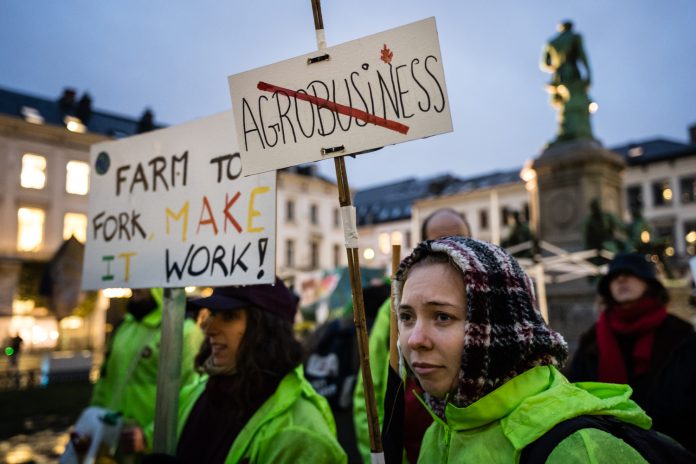Many of the problems over which farmers have been protesting for days are common to a number of countries like Greece, Hungary, France and others, where this week the government was caught off guard by a motorway blockade in Paris.
It is only exceptional problems that are unique to a country, such as Berlin’s plan to phase out tax breaks on farm diesel or the Netherlands’ demand that nitrogen emissions be cut, but for the most part the problems have the same root, as already mentioned.
Farmers say they face falling sale prices, rising costs, heavy regulation, powerful and domineering retailers, debt, climate change and cheap foreign imports.
Farmers’ costs have risen in many EU countries, especially since the start of the Ukraine-Russia conflict. At the same time, governments and retailers, mindful of the impact of the cost of living crisis on consumers, have taken steps to reduce rising food prices, with prices at farmers’ markets falling by almost 9 percent on average between the third quarter of 2022 and the same period last year, with only a few products, including olive oil, which has suffered from shortages, bucking the trend.
Imports are also a problem, especially in Central and Eastern Europe, where a flood of cheap agricultural products from Ukraine has driven down prices and increased resentment of unfair competition, with the consequence that the first farmers to face everything were Polish farmers who began blocking roads from Ukraine in protest as early as last spring, and although Brussels soon imposed restrictions on Kyiv’s exports to its neighbours, once they expired, Hungary, Poland and Slovakia announced their own.
In France, for example, cheap imports from far-flung countries are increasingly frowned upon. Products from countries such as New Zealand and Chile are frowned upon because they don’t have to meet the same strict standards as EU farmers.
Nevertheless, this problem doesn’t seem to be as big as the extreme weather events caused by climate change, which are increasingly affecting production: some reservoirs in southern Spain are only 4 percent full, and forest fires last year destroyed around 20 percent of Greek farms’ annual income.
The farming sector, which accounts for 11% of the EU’s greenhouse gas emissions, has recently become increasingly alarmed by the rules of the EU’s farm-to-fork strategy, part of a key European green deal aimed at making the bloc climate neutral by 2050. The Common Agricultural Policy (CAP), the €55 billion-a-year subsidy system that has underpinned Europe’s food security for more than 60 years, has historically been based on economies of scale: bigger farms, bigger farms, uniform standards.
Existing EU rules in areas such as irrigation and animal welfare are interpreted too strictly. Farmers argue that the new green policies are unfair, unrealistic, uneconomic and will ultimately lead to self-destruction.
With farmers increasingly favoured by Europe’s right-wing parties, which are expected to make significant gains in the European Parliament elections scheduled for June, further concessions seem more than plausible.
